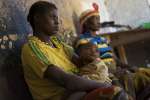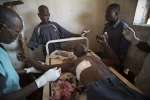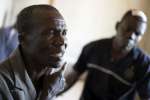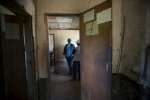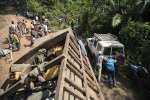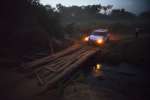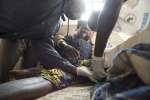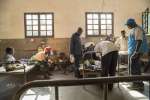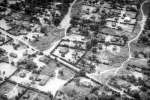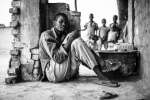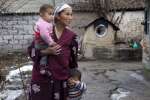- Text size
 |
|  |
|  |
| 
- Français
Thousands of refugees continue to flee Burundi
Briefing Notes, 30 June 2015
This is a summary of what was said by UNHCR spokesperson Melissa Fleming – to whom quoted text may be attributed – at the press briefing, on 30 June 2015, at the Palais des Nations in Geneva.
Nearly 10,000 Burundian refugees fled the country over the weekend before Burundi closed its borders on Sunday evening ahead of the parliamentary elections on Monday. According to the Burundian authorities, the border will be closed for 48 hours, as per usual practice during elections. Refugees now have to use informal border crossings through the forest to leave the country.
UNHCR offices in Tanzania, Rwanda and the Democratic Republic of Congo started to report a sharp increase in arriving refugees as of mid-last week. This weekend, the pace of arrivals spiked, with more than 6,000 arrivals in Tanzania and over 3,000 in Rwanda. On Monday, we only registered 777 Burundian arrivals in Rwanda, while more than 2,000 refugees managed to reach Tanzania through the forest. Almost 144,000 refugees have now fled Burundi since the beginning on April.
The refugees who arrived in Rwanda, Tanzania and the Democratic Republic of Congo said that roads are being blocked and people suspected of heading to the border are forced off buses. Some have reportedly been arrested and others have seen their belongings confiscated. Several of the men who arrived in Tanzania over the weekend said they had to walk for several hours, often through the bush and without luggage so as not to attract the attention of the militias and police. Immigration and government refugee officials in the neighbouring countries continue to register Burundian refugees who manage to get through, even if they use unofficial border crossings.
While initially most of the refugees were women and children, recently we have seen a growing number of men arriving. They cite the breakdown of efforts to resolve the situation and the lack of hope as the reasons for leaving, fearing that violence will intensify during the electoral period, which started on Monday with parliamentary elections and is scheduled to end with presidential elections on 15 July. In Zambia, 90 per cent of the Burundians registering as asylum seekers are young men.
In the neighbouring countries, UNHCR provides the arriving refugees with initial assistance, including hot meals and transports them to transit centres and eventually refugee sites, where more complete registration, health, water, sanitation and protection services as well as other assistance are available to them. While UNHCR and partners have geared up preparations for the arrival of larger numbers of refugees, the regional refugee response plan that seeks USD 207 million to protect and assist up to 200,000 Burundian refugees, remains seriously underfunded with only 13 per cent of its requirements covered.
Since pre-election violence started in Burundi, nearly 144,000 refugees have fled the country, mostly to neighbouring Tanzania (66,612), Rwanda (56,508), the Democratic Republic of the Congo (11,500), Uganda (9,038) and Zambia (400).
For more information on this topic, please contact:
- In Dar-es-Salaam, Stephen Mhando on mobile +255 784 730 424
- In Kasulu , Massoumeh Farman-Farmaian +255 (0) 784 616 601
- In Kigali, Erika Fitzpatrick on mobile +250 (0)78 838 9828
- In Kampala, Charles Yaxley on mobile +256 (0) 776 720 045
- In Lusaka, Kelvin Shimo on mobile +260 979 585 832
- In Geneva, Karin de Gruijl on mobile +41 79 255 9213

